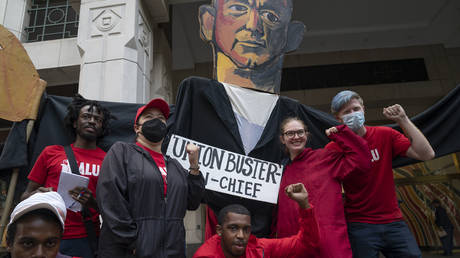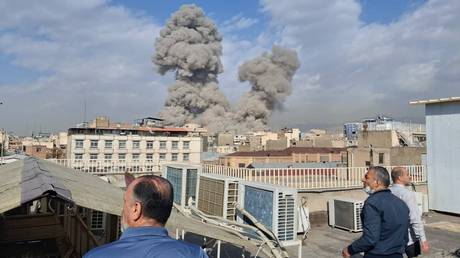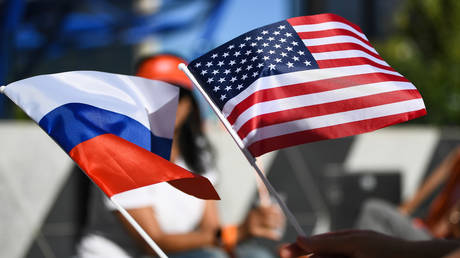
Social bloopers and lack of interest led to the quiet termination of the program, sources tell media
Amazon shut down a campaign in which warehouse employees were set up as social media ‘influencers’ in order to push back against negative publicity at the end of last year, according to sources with direct knowledge of the move, cited in a Financial Times report on Wednesday. The mega-corporation also reportedly erased all traces of the program, which had been operational since 2018.
Several reasons were given for the campaign’s deletion, from senior executives upset about the lack of retweets and shares Amazon’s employee influencers were getting to trolls masquerading as Amazon influencers ‘gone rogue’, sharing stories of the ‘real’ Amazon the program was set up to discourage in the first place.
The trillion-dollar company has been building warehouses across the US at a rapid pace, its profits skyrocketing as two years of coronavirus restrictions have customers all over the world ordering online instead of going out shopping, and has added 700,000 new employees worldwide since the pandemic began. Amazon is the second-largest employer in the US, behind only Walmart.
However, conditions at those metastasizing warehouses remain a sore point that even the company’s hefty PR budget can’t seem to distract from. While it has switched to more ‘traditional’ routes to positive publicity like warehouse tours since memory-holing its social media campaign, the publication of its first-ever safety report on Monday included some ominous statistics. While injuries serious enough to cause a worker to take time off had reportedly declined 43% from 2019 to 2020, Amazon’s warehouses are still more dangerous than the industry average, forcing the reader to wonder just how bad things were in 2019.
Workers selected for the influencer program were reportedly instructed to reply in a “blunt but polite” tone to what the company considered malevolent rumors posted by critics of Amazon. They were allegedly told to not target journalists, which would likely help avoid tweets like “No, that’s not right. I worked in an Amazon [Fulfillment Center] for over four years and never saw anyone urinate in a bottle” appearing in news outlets.
READ MORE: Amazon’s Alexa dishes out potentially deadly challenge
While lowly warehouse workers may have been saddled with the responsibility of bolstering Amazon’s negative publicity, senior executives were found to be more likely to have caused the issues. Aside from founder Jeff Bezos’ enormous and ongoing accumulation of wealth, Amazon higher-ups have been forced to apologize (or at least delete social media posts) after attacking US politicians who commented negatively on warehouse working conditions.




